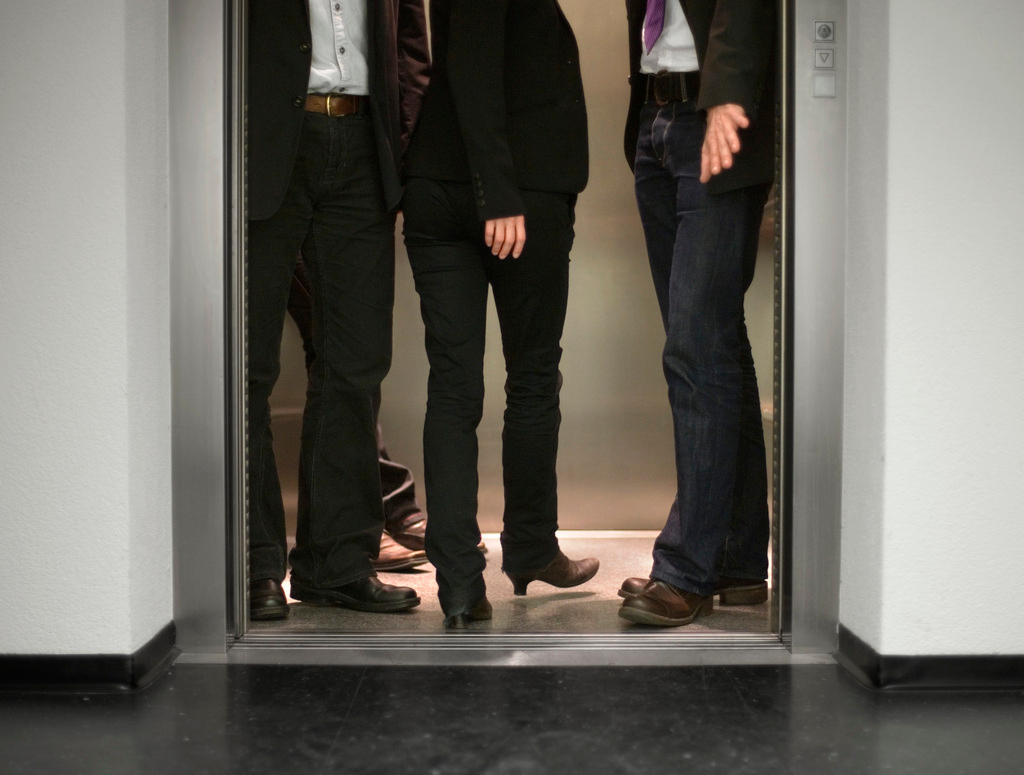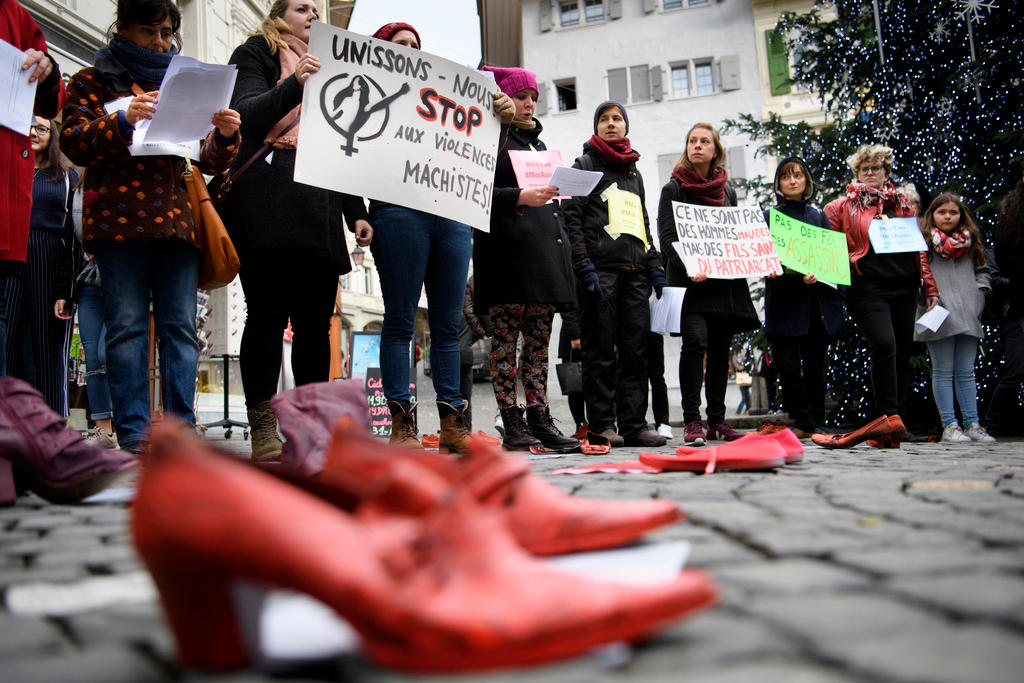
One in ten workers seeking help for sexual harassment is a man

The Zurich Office for Gender Equality has found that men make up 10% of those seeking help on its dedicated internet platform advising people who feel sexually harassed at work.
The platformExternal link was started a year ago in collaboration with other organisations and gives people an initial free consultation and advice on where to find more help to deal with the issue.
So far, it has advised an average of two people a week who suffer from sexual harassment in the workplace. A tenth of them were male, said Anja Derungs of the Zurich Office for Gender Equality in an interviewExternal link with Swiss public television, SRF, on Monday.
Derungs said she was a little surprised herself by the findings. “With men, it’s still an even greater taboo subject and nobody wants to be the victim of sexual harassment.”
+ Learn more about sexism in the Swiss parliament
Power dynamic as a trigger
It was, however, a reality that men suffer from sexual harassment too, Derungs said. They might feel discriminated against based on their sex or experience a sexist climate in their company.
Essentially, the cases the platform dealt with were similar to those experienced by women. “Sexist jokes and physical contact also affect men; it can happen to both sexes,” she said.
Sexual harassment very often had little to do with somebody’s gender but was actually related to a certain power dynamic, according to Derungs.
The online-based service also helps people who don’t work in a standard office environment but in industries which are “otherwise hard to reach”, Derungs said. This is the case, for example, with the hospitality and construction industries, where things aren’t as well regulated as in an office.

More
What to do if sexual harassment happens to you

In compliance with the JTI standards
More: SWI swissinfo.ch certified by the Journalism Trust Initiative





























You can find an overview of ongoing debates with our journalists here . Please join us!
If you want to start a conversation about a topic raised in this article or want to report factual errors, email us at english@swissinfo.ch.